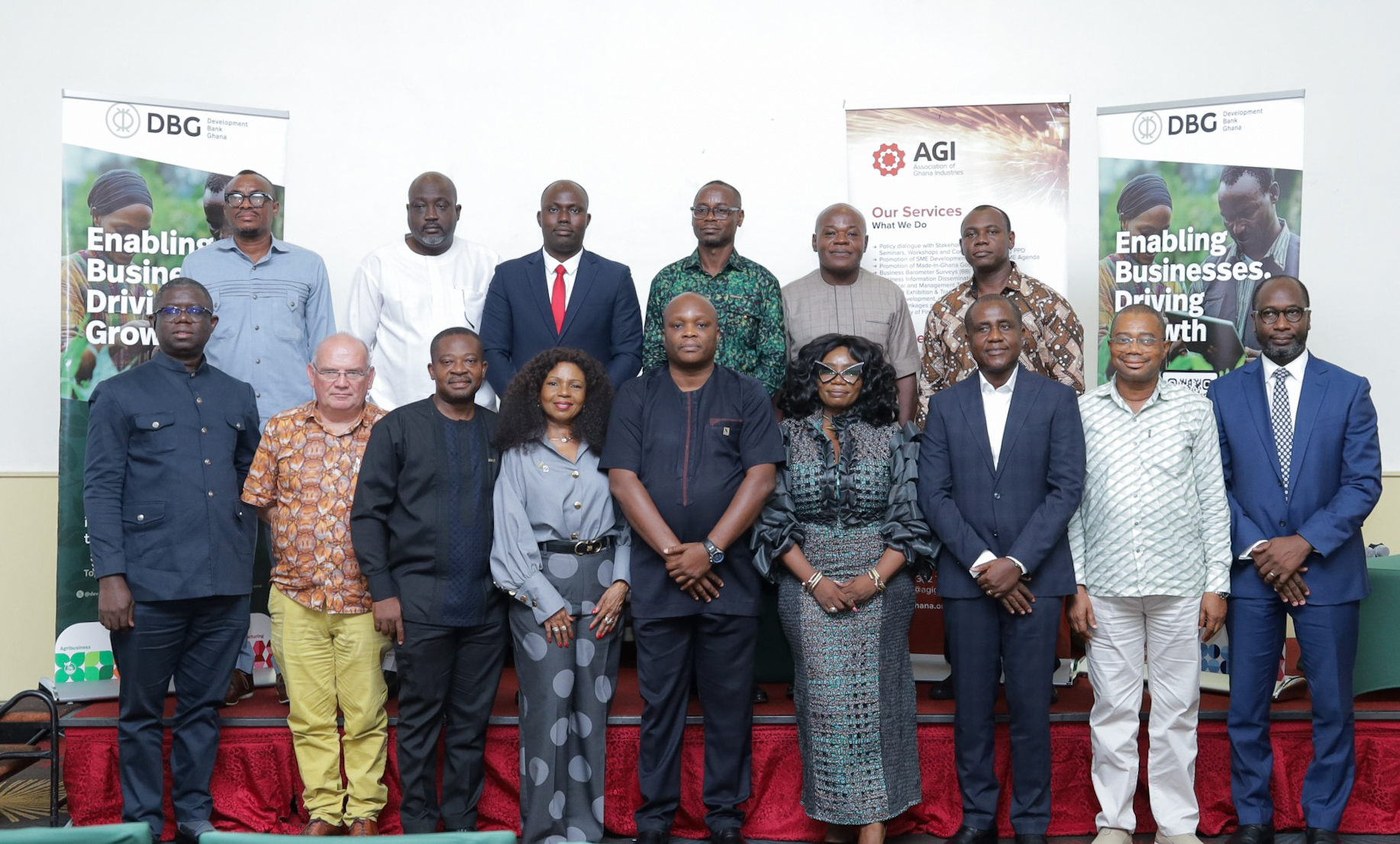Gov’t leverages purchasing power to revive textile, garment industry
By Thomas-Moore ADINGO
The Ministry of Trade, Agribusiness and Industry (MoATI) has begun talks with six other ministries to procure uniforms and apparel from local manufacturers and designers.
The move is expected to leverage state purchasing power and stimulate the textile and garment sector, according to Chief Director-MoATI Noah Tumfo, will see ministries including Education, Defence, Interior, Health, Lands and Natural Resources procure uniforms locally.
“This initiative is expected to create reliable market access for local manufacturers while strengthening domestic value chains,” Mr. Tumfo noted.
The overarching goal, he added, is to promote local procurement of uniforms and other apparel used by state institutions – a move that aligns with government’s Made-in Ghana programme.
Mr. Tumfo, who spoke at a policy dialogue on the textiles and garment industry organised by Development Bank Ghana (DBG) and Association of Ghana Industries (AGI), also announced that government is prioritising the development of a policy for the garment and textile.
The policy seeks to establish textiles and garment parks – aimed at accelerating growth of the domestic industry. This policy forms part of the Mahama-led administration’s ambitious Big Push industrial transformation agenda.
The parks, which will feature plug-and-play factory shells, are expected to significantly reduce the lead-time associated with setting up garment factories while addressing logistical challenges in securing suitable industrial sites.
Government also highlighted broader market opportunities along the textile value chain, which are bolstered by existing bilateral, regional and continental trade agreements.
Creating an enabling environment for investment in the sector is critical to unlocking its full potential, say industry players.
“The textile and garment industry’s revitalisation is not just an economic goal – it is a national mission. With the right policy framework, this sector can become a major source of employment, innovation and cultural pride,” Chief Director Tumfo told the gathering.
Policy dialogue
The event is part of an ongoing partnership signed between DBG and AGI in 2024.
As part of the memorandum of understanding (MoU) between the two, Development Bank Ghana is investing at least GH¢100million annually in the domestic textiles and garments industry over the next three years.
The funding is being channeled through partner financial institutions (PFIs) and development partners (DPs) via long-term financing.
DBG pledged to commit an initial GH¢566,200 for AGI to execute various activities under the programme. These include identifying at least three investable projects within the textile and apparel value chain, providing technical assistance, facilitating market development, organising capacity-building sessions and conducting regular monitoring and evaluation to assess the programme’s impact.
Under the MoU, DBG and AGI are implementing a three-year initiative to provide technical support, financial resources and market development assistance to selected textile, garment and fintech companies.
The programme aims to address critical challenges such as high production costs, limited skilled labour and restricted access to long-term financing.
Speaking at the event, themed Revamping Ghana’s textiles and garment industry -The challenges, pitfalls and opportunities, Chief Executive Officer-Development Bank Ghana, Dr. Randolph Nsor-Ambala, noted that the domestic textile industry’s resurgence is being viewed as both a symbol of renewed industrial ambition and a strategic move to enhance international collaboration.
“Textiles represent a large entrepreneurial opportunity. For many, it’s more than a livelihood – it’s a pathway to dignity and economic empowerment. This is why our focus, as developers and financiers, has been on unleashing the textile industry’s full potential to deliver its associated benefits,” Mr. Nsor-Mbala noted.
Commenting on the event, he added that: “We need frank discussions on how to address institutional bottlenecks, supply-side challenges and the persistent dumping of foreign wax-prints on our market”.
Key among the priorities he highlighted were appropriate sourcing of raw materials, access to affordable and targetted financing and implementing practical, result-oriented strategies to support growth in the sector.
“There is an urgent need for pragmatic, implementable actions that bring together the financial sector, entrepreneurs and policymakers to drive the industry forward. The opportunities for employment are enormous – as are the prospects for restoring national pride and identity,” the DBG boss concluded.
AGI
Chief Executive Officer of the Association of Ghana Industries, Seth Twum-Akwaboah, reacting to the policy announcements, said that if properly implemented, the two policies have the potential to significantly transform the sector.
“If the government commits to buying locally, that creates a huge market which can spur expansion and job creation,” he stated.
The post Gov’t leverages purchasing power to revive textile, garment industry appeared first on The Business & Financial Times.

